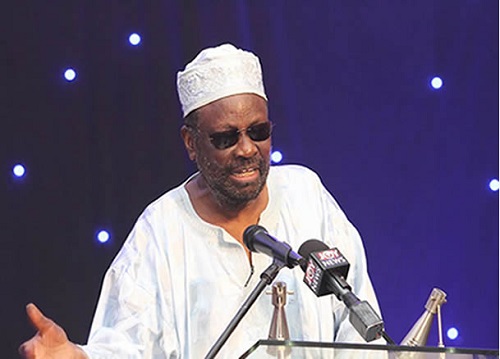it is an ardent wish of mine that at the beginning of each administration, and on a six-monthly basis thereafter, the entire government (including the President) would open itself up for interaction with the public.
You see, the system of government we have been running is entirely alien to our way of life. In our homes, we don’t wait for a formal sitting of the entire complement of mature people in our family before reacting to something that has happened in the family that does not please us.
We look for an opportunity and then, when we have witnesses, we corner the person concerned and open up. “They say you said this or that about me, when I wasn’t present!”
“Me? I spoke against you?”
“Yes! Have you forgotten?
When they were going to bury our departed Uncle Kwasi and you said I had gone to look after my map-wine business and wasn’t in the company?”
“Who told you I spoke against you? I just made a general remark that these days, when a task that should be undertaken by our entire family arises, only a few of us turn up. I never mentioned your name!”
“But you knew I wasn’t there and if you had asked, someone would have told you that I needed to fulfill my obligation to take some palm-wine to the relatives of the late Madam Abenaa Wusuaa!”
“But was I in any state to make investigations at a time like that? Am I a policeman to make investigations before I speak my mind? I saw what I saw and I said what I needed to say. I didn’t mention your name. And in fact, I also noticed that Kwa’ Mensah was also not present. It was later that I heard that he had taken his daughter to the hospital.”
ELDER IN THE HOUSE:
“AH, but you two, is this a matter to bring a quarrel? Especially when the tears in our eyes haven’t yet dried after we have wept so much for our dear departed? Stop this childish squabbling!”
CROWD: Opanin has spoken. Let the matter end there! And the matter would END there.
A government that is set up after elections has no way of so quickly short circuiting potential misunderstandings. Local assemblies, Parliament, the Cabinet and the President’s office might have to intervene before a settlement is reached. (That is, assuming they all got to hear about the burgeoning misunderstanding in the first place!)
I recently watched a TV programme in which a member of the government and an opposition MP were debating the sale of the shares of SSNIT in some hotels to a member of the government. SSNIT’s case, apparently, was that the hotels were not making a decent profit and the member of the government put up a strong case for their sale. For once, a political TV debate was well-mannered and each side was able to make its case quite coherently.
But the member of the government missed the point of the protests against the sale.
It isn’t the details of the sale that are important, but the PRINCIPLE. The government of the day must tread carefully before selling public property to anyone, let alone a minister. Have the NPP members forgotten – or not heard of – the attempted sale of GIHOC
Pharmaceuticals to a US company called Abbott Laboratories in 1967?
It was the spirited defence of Ghana’s interests – as elaborated by Dr. Jones Ofori Atta of blessed memory (against a poor case put up by Mr. Sylvan Amegashie (the NLC Commissioner for Industries) that saved the enterprise for Ghana. The country rewarded Dr. Ofori Atta by voting his party, the Progress Party (PP), to power in the 1969 General Election.
It is historically ironical, therefore, that the ‘baby’ of the PP, the NPP, should want to soil its name by allowing a minister of the NPP to buy the shares of enterprises partly owned by an agency of the state of Ghana, SSNIT. The NPP ought to know that like “Caesar’s wife”, it must be “above suspicion”.
If the NPP held open congresses, at which it could invite its members to openly debate its proposed policies (not just to elect candidates to hold high offices) it would benefit from learning the real opinions of ordinary Ghanaians, vis-a-vis some of its NPP actions and/policies. Corralling Ghanaians into accepting a fixed position of “My party, right or wrong,” will not be in the NPP’s interest in the long run.


